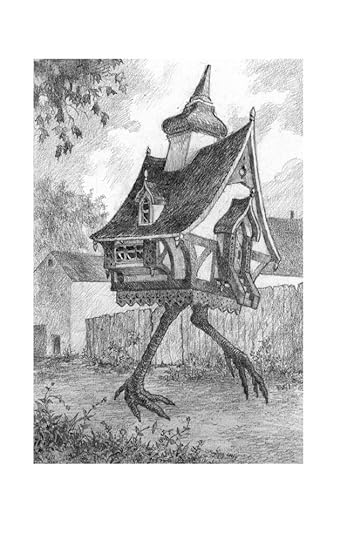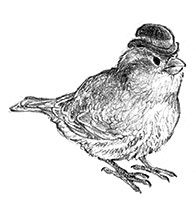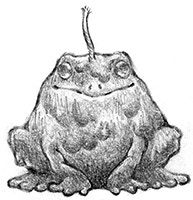What do you think?
Rate this book


246 pages, Kindle Edition
First published January 25, 2017


She thought, down in her very private heart of hearts, that she wanted to go home.Summer in Orcus will be enjoyable for both younger and older readers. It’s written on a middle grade/young adult level, but its sly humor and frequent references to classic fantasy novels and fairy tales will keep adult readers engaged. While the life lessons learned aren’t particularly subtle, they have elegance and mesh well with the plot of the book. Very highly recommended!
She felt immediately guilty for thinking it. In books, nobody who found themselves in a fantasy world ever wanted to go home. (Well, nobody but Eustace Clarence Stubb in Narnia, and you weren’t supposed to agree with him.)
She was definitely not feeling grateful enough for being on a superb magical adventure. She told herself this sternly several times and then wanted to cry, because it doesn’t help to yell at people who are cold and wet, even when the person yelling at you is you.

The tree rustled its branches, harder, and more leaves showered down. She heard the trunk groan, the way trees groan and mutter in a storm.
These leaves hopped. Some of them had changed, but there was something wrong with the frogs. They had no legs or too many legs or they plowed forward on their bellies. In a very few seconds they were all leaves again, and Summer was glad, because there was something horrible and piteous about the frogs. They had looked as if they were dying.
The white tree thrashed. Its limbs swayed in a gale that only it could feel. Behind them, the other two white trees moaned and swayed in sympathy.
Every leaf on the tree fell down, leaving the branches as bare as winter.
Many people have heard of a rain of frogs, but very few - far fewer than say they have - have ever seen one. Summer became one of those few. For a moment the air was full of tiny green frogs, transforming before they even hit the ground, all of them croaking like fingernails dragged over a comb.
"Killdeer," said Reginald, spiraling down for a landing. "They can talk, after a fashion, but it's not worth listening to. All they ever say is, "Help, help, my wing is broken, don't eat me.'"
"Are their wings broken?" asked Summer.
"Not a bit of it. They just do it to get people away from their nests. You tell them a hundred times that you're not the slightest bit interested in their nests, that there's nothing more tedious than having to look after other people's children, but they never listen."
“It would be a good day for the world if I could not find a child who knew terrible adult things. But I will be a great deal older before that day comes, I think.”Not quite a beginning quote but it may be why so many rightly say this is a middle-school portal fantasy for adults, though it is equally an adult portal fantasy for those middle-schoolers comfortable in classic adult fantasy (I know you're out there, lurking on GR: I was once you).
"It is difficult to walk across an enchanted desert and then be thrust into someone else’s sense of humor.":)
“Saving a single wondrous thing is better than saving the world. For one thing, it’s more achievable. The world is never content to stay saved.”
She felt immediately guilty for thinking it. In books, nobody who found themselves in a fantasy world ever wanted to go home. (Well, nobody but Eustace Clarence Stubb in Narnia, and you weren’t supposed to agree with him.)
She was definitely not feeling grateful enough for being on a superb magical adventure. She told herself this sternly several times and then wanted to cry, because it doesn’t help to yell at people who are cold and wet, even when the person yelling at you is you.
“Summer had read a great many books about magic and animals and changing your shape. Summer’s mother believed that books were safe things that kept you inside, which only shows how little she knew about it, because books are one of the least safe things in the world.”
There was a little round table in the middle of the room, and on it stood a dozen candles. They were all colors and sizes. A few of them had been melted partway down. Several were shaped like animals. Summer’s hand hovered over a silver unicorn, with the wick coming out of its horn, but then settled on a plain beeswax frog. The wick had been burned down a little way already and beads of honey-colored wax ran down its sides.